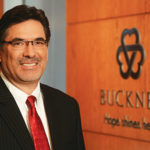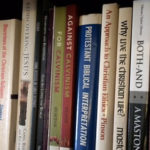LONDON (RNS)—As Britain grapples with religious extremism, Parliament has turned its focus toward English schools.
Parliament’s education select committee heard from England’s chief inspector of schools, whom some appreciate for her frankness on the issue and others accuse of unfairly singling out Muslims.
Chief Inspector Amanda Spielman made headlines at a conference last month for her remarks after a clash between educators and Muslim parents.

Speaking to members of Parliament March 7, Spielman reiterated her concerns about religious extremism in English schools. Her inspectors had found some private Islamic schools where children had been shown films of people being beheaded and students had been taught it is acceptable for men to beat their wives, she reported.
Although these most extreme examples were found in private schools not properly registered with authorities, Spielman also expressed concerns about state schools.
Anxiety about religious extremism
That British parliamentarians have chosen to intervene in the issue signifies how much anxiety surrounds it—in education circles and British society at large. Educators have come into conflict with conservative Muslim parents who want their children to be able to observe religious practices even in secular state schools. The parents accuse the schools of thwarting religious expression.
The politicians’ decision to summon Spielman—head of the Office for Standards in Education—before the select committee followed her public comments warning of grave tensions in schools over religion, particularly Islam, and her urging of head teachers to promote a “muscular liberalism.”
She explained to members of Parliament what she meant by this was “living British values.”
“If we tolerate deeply intolerant practices and culture, we are not living British values,” she said.
Sign up for our weekly edition and get all our headlines in your inbox on Thursdays
Inspectors had found in schools “books by people who are banned from entering the country, books promoting very concerning practices,” Spielman said.
She also called Britain’s education system “unusually permissive” and called for inspectors to have more oversight of unregistered schools.
Speech prompts charges of intolerance
Spielman’s earlier comments on the conflict between religious and British values were made at a conference on education organized by the Church of England. There she expressed support for a London head teacher who had tried to ban girls under the age of 8 in her school from wearing the hijab and to stop children fasting on school premises. That teacher had been called a racist and likened to Adolf Hitler in a spoof video. The school’s governors overturned the ban and made her apologize.
Spielman, in the same speech, also warned of extremists using education “to isolate and segregate, and in the worst cases, to indoctrinate impressionable minds with extremist ideology.”
After Spielman’s comments, her critics accused her of intolerance toward Islam and of conflating culturally conservative Muslims with extremists.
“Spielman’s speech made a big leap from the debate about children wearing the hijab, to extremism. It is a leap that is made all too often by public officials, particularly when it comes to education,” Samira Shackle wrote in The Guardian. “We see it time and time again: any policy question that relates to Muslims is immediately framed as an issue of terrorism, fundamentalism or a failure to integrate.”
The Muslim Council of Great Britain responded to Spielman’s remarks: “Ms. Spielman continues to issue a disproportionate number of public statements about Muslims and apparent links to extremism.”
Changes in the U.K.
Although Islam is now Britain’s second-largest religion, Muslims still make up a small share of the population—4.4 percent, or 2,786,000 people. But with few Islamic schools and the Muslim population concentrated mainly in inner cities, especially London, the student bodies of some secular state schools have become almost entirely Muslim.
She has won support for her outspokenness. Her predecessor as chief inspector, Sir Michael Wilshaw, warned that given the profound changes in British society, schools need official guidance from government over whether girls should wear the hijab in class.
Wilshaw told the BBC: “The (U.K.) has enormously changed. When heads want to change things, they have now to take into account deep-seated and sincere feelings. … The government needs to step in.”
He also warned that government ministers were too reluctant to act.
“There is a reticence and it’s leaving head teachers alone, isolated and vulnerable,” he said.
The National Secular Society, one of Britain’s leading organizations favoring more secular public spaces, has also expressed concerns teachers aren’t given the support they need when faced with parents who want a more religious school culture.
Its education and schools officer, Alastair Lichten, said: “It is possible to come down on either side of the argument about religious dress in schools, but the haranguing of teachers who make the decision is a real problem.”
Spielman’s agency also wants to investigate the activities of religious organizations that offer education to children out of school. While this would include madrassas, offering instruction to Muslim boys, it would also encompass that most traditional of English institutions, the Church of England Sunday school, where children are taught Bible stories.
But the Church of England is resisting any changes to the law that would allow her agency’s inspectors to investigate, perceiving it as an infringement of freedom.
In 2016, a government proposal that all groups caring for children for more than six hours a week be inspected was dropped after Archbishop of Canterbury Justin Welby intervened.
Church leaders then feared snap inspections could lead Anglicans to be targeted by inspections devised as counterterrorism, with Anglican teaching on matters such as gay marriage and gender roles flagged as extremist.














We seek to connect God’s story and God’s people around the world. To learn more about God’s story, click here.
Send comments and feedback to Eric Black, our editor. For comments to be published, please specify “letter to the editor.” Maximum length for publication is 300 words.